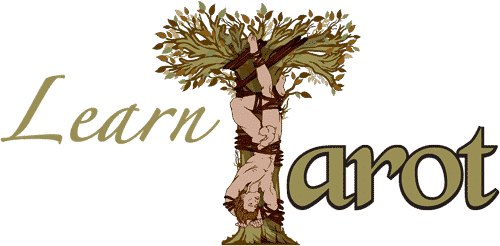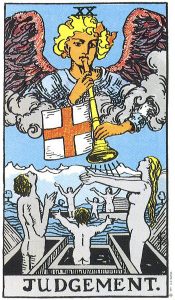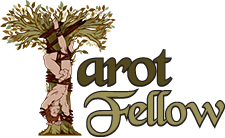

The Fool’s Journey
The Fool leaves the garden of The Sun with an inner knowing that the end of his journey is near. He feels an excitement for the next step that he’s never felt before—a knowing that whatever is to come is exactly what he’ll need.
Looking to The Sun to lead him, he is surprised to find the light in the sky replaced by a fiery angel. “To continue on your journey,” the angle says, “you must finally lay your past to rest.”
The Fool is surprised by this. Hadn’t he already left his past behind?
The angel, reading his thoughts, corrects him. “Your past is a part of you. You can never leave it behind, but instead must come to terms with it. Are you willing to do that?”
“I am,” The Fool responds, sure that he no longer wants to be held back by anything.
“Then blow this trumpet,” the angel says. And The Fool does.
As if rising from the grave, images of his past appear from out of the ground. His innocence, his failures, his wins, his disillusionment, his wisdom, all appear before him. He realizes that even the words he uses to judge these memories are based on a system he no longer believes in . He must judge his own judgment of them in order to let them go. All of these things happened, but now they are gone. While the memories and lessons remain in his mind, they no longer have any power over him. They are neither positive or negative, good or evil. He is free, reborn, wholly in the present.
Card Meaning
The story of Judgment is one of letting go and examining the framework by which we judge our past, present, and future. How do we assign words to things like “good” and “evil?” What framework were we taught, must we undo, in order to not be held by our baggage?
Living in the present can only be accomplished if we unite with our past, we can’t separate ourselves from it. Don’t get stuck judging yourself with old belief systems. This is hard to change, because we tend to look at our past from the lens that existed within our past. Past systems of dogma are hard to judge, and we must constantly judge our own judgment.
Perhaps you see Judgment in the traditional sense, as a day of reckoning where you must answer for your actions and inaction. While this interpretation can’t be entirely dismissed, Judgment happens entirely based on your own inner system: we are our worst judges, after all.
Judgment often shows us the reconciliation of two parts of ourselves. As in The Fool’s Journey, this can be our past with our present, but often in a reading Judgment appears when we reconcile any opposites within ourselves: the yin and yang, the parts of us we don’t like, etc.
The symbolism on the Rider Waite card is particularly interesting. In the background, the mountain upon which The Fool first began his journey. There is an ocean representing the termination of the flow of the journey, the angel (most often thought of as Gabriel) is wearing red and white, a color scheme that has now become a pattern.
Judgment is not an ending, but a beginning, a time of cleansing. Unlike Death or The Tower, this change is not destructive, but represents your ability to be wiped clean and start over, so long as we don’t ruin our new life by bringing our past back into it. You cannot continue degrading yourself because of your mistakes… and do you see what I just did there? I judged something as a mistake! Even that judgment needs to be reframed.
Like The Sun, the action continues with Judgment. Now is the time to decide, to move forward even if you are unsure of the framework to come (because you’ve now judged the framework of your past to be useless). Don’t let that final rising of fear hold you back.

